Minister Faust's Blog
July 8, 2021
One of the many reasons we need African teachers in classrooms--we can see excellence in African students that most European teachers totally miss
These days I'm thinking, writing, and doing plenty about the need for Africentric education. Below find an excerpt from my novel THE ALCHEMISTS OF KUSH, soon to be republished by MVMedia, based on one of my experiences as a teacher of some very smart young African men whose intelligence at discussing, analysing, and writing about literature no non-African teacher had ever bothered to notice or encourage.
If you want to read a study of 157,000 US kids explaining why kids of all racial backgrounds preferred African and Latinx teachers to European settler teachers, well, I've got one for you right here. If you'd rather read the short NPR summary, I've got you covered. And now, on with the show:

“You two kill me!” said Moon that same night at the Hyper-Market. “I’m really disappointed with you!”
Raptor and Jackal, staring at feet, floor, walls, anything.
“Well?” pressed the older man.
“Brother Moon, what difference does it make?” said Jackal. “We’re still gonna get our diplomas—”
“Worthless diplomas,” he growled. “You’re taking, what do they call it now?” He glanced back at their class schedules he’d asked to inspect. “English Thirty-Two?”
“Thirty-dash-Two,” offered Raptor.
“When I was in school they called it English 33. Remedial. Get a diploma, Do Not Pass Go, Do Not Go to University.”
Both boys: “University?”
“Yes, university!”
“Brother Moon, all respect due,” said Jackal, tilting his head so his locks grazed his right shoulder, “but, but, university? I mean . . . what good’s that gonna do?”
“Better jobs, better money, live longer and healthier? What’s not to like? Get smart or die slaving!”
“My dad has a PhD,” said Jackal in a small voice.
Raptor snapped his eyes towards his brother, who never talked about his father. Moon’s eyes widened.
“And he drives a taxi.”
Moon paused to pour coffee for a customer and give him a login code for carrel #3.
“Okay, I transform that,” said Moon. “It’s true. A lot of our people from the continent are in the same pit. Pilots who aren’t allowed to fly, surgeons who aren’t allowed to slice, teachers who aren’t allowed to teach—”
Jackal: “I can’t afford fifteen-twenny grand trainin for a job they aint even gon give me.”
“Listen,” said Moon, “you two are smart. You know the Scrolls, you’re masterful with words when we make our Daily Alchemy . . . we talk about books, you’re both insightful. Your posts on the Street Falcons blog are excellent—”
“You read those?” The bright words’d bubbled out of Raptor before he could stop them.
“Course I read them! Why wouldn’t I?”
Moon brought them to carrel #6, opened up their school’s website course listings for English and laid out their battle plan: they were immediately to get out of Grade 12 remedial lit class—English 30-2—and re-register in half-year Grade 11 academic English, 20-1, so they could take 30-1 in the second semester. He’d give them any help they needed.
“But later for this ‘good enough’ bullshit. You two have gold minds. Why your teachers never saw that before—well, we know why they didn’t see it. When it’s our kids, getting sixty percent is supposedly the best we’re capable of. No cause to worry or even call home.
“I’d been teaching you? I’da pushed you into advanced placement. That’s what I took when I was your age, and not even half the class had your smarts. They were just there because their parents were judges, doctors, professors—ambitious people who wanted trophy kids, regardless of what they could actually do.”
Jackal: “But what about a J-O-B? Even if I got the paper?”
“Bruh, success is like . . . like a penalty shot. You grab your stick, focus on the net, you still gotta beat that goalie, but yeah, you could score. But you skate off the ice, take your blades off, then you have zero chance of hitting the mesh.
“I can’t guarantee you’ll make the point, but I do guarantee that you’ll get that shot, and that means being ready for it when it comes, and staying on the ice.”
Moon asked him what he wanted to do for a career.
“I wanna be a producer, like Jay-Z.”
“J-C, Jay-Z,” said Raptor, and they all laughed. Jackal dropped: “He’s got like two hundred million dollars—”
“You wanna be a producer? Supreme.” Still at carrel #6, he image-Googled Jay-Z, brought up the boyish-looking aging rapper in a power suit.
“So you go to NAIT and study sound engineering. Get a diploma so you can work in any music studio anywhere in the world. You take some business courses so you can handle your own money—”
“Yeah, but Jay-Z never went to university, and he’s super smart.”
“Think about basketball, bruh,” said Moon, image-searching for shots of b-ballers. He clicked on two, left them up.
“The buzzer’s gonna go off in ten seconds. Do you get lazy, like this guy, don’t even run, just take the shot from behind the centre line? Or do you run like this guy to take your shot from the key?”
Clicked back to Jay-Z.
“Jay-Z’s one in a million. There’s maybe a coupla dozen music producers earning his kinda money. You’re damn right, he’s smart. You think a lawyer’s smarter than he is?”
Jackal said, “Hell, no!”
Raptor: “Maybe Brother Maãhotep.”
Jackal: “Well, yeah. He’s pretty smart. But he aint rich.”
“Brother’s doing well,” said Moon. “But outta all the uneducated but intelligent young rappers out there, how many you calculate wanna get rich, but end up poor? Maybe, ninety-nine-point-nine-nine-nine percent?
“Now, what percentage of educated lawyers who aren’t smart get rich? Or at least Maãhotep-comfortable?”
Raptor rolled back on his heels. Jackal eyed him sideways.
“You transform that?” said Moon. “Yes, Leadites and Pyrites buried your father’s gold. That’s a fact. It’s serious. But you were born in the Savage Lands, transform? So what can you see, because your Shining Eye was forged here, that your father can’t?”
Jackal looked at the screen, then at Moon. “I can see the traps? The pits the chainsmen dug in the ground?”
“Transformed. And what else?”
“I can track the Wanderers? Like, to build up an army?”
“Transformed. And?”
“I can train the Mesnitu and make my own forge?”
“Transform—”
“I can drain the Swamps of Death and master the elevated lands, and raise a Golden Fortress for the orphans of the Savage Lands—”
“Transform—”
“I can create hope, joy and justice to make stand those who weep, to reveal those who hide their faces, and to lift up those who sink down—”
And all three of them leapt in: “In doing so, we will all rise nearer to the Supreme.”
Grade 7. Raptor, sitting at the back of the class. His homeroom teacher Mr. Manna, the same one who’d called him “dumb as a sack of hammers” in front of a colleague without realising he could speak English . . . he was making the class announce what career they wanted when they grew up.
Raptor spent the long wait with coals in his lungs till it was his turn, hating being forced to talk in front of the class, but telling the truth: he wanted to be an astronomer.
In front of everybody, Mr. Manna told him he should focus on something attainable.
“Do you know what ‘attainable’ means, Raphael? You’re probably good with your hands, right? How about being a cook or something like that? Or maybe house painting. Long as there’s houses, there’s always gonna be money in house painting. But a scientist?” He actually goddamn chuckled.
“That’s just not attainable for someone like you.”
A gaping asshole. Raptor’d never doubted his own brain: when he put his mind to a task he was smarter than almost anyone he knew.
But so what? What was attainable on the open roads of the world when the pyrites posted men like Mr. Manna with swords at every gate and border?
“Earth to Raptor,” said Moon.
Jackal was looking at him, too, eyes waiting. “I said, what do you want to do for a living?”
Reflexively, shrugging: “I’ont know.”
Instantly, Moon: “I don’t believe you. If you could do anything, if you could be anything—”
Burning, his shoulders—
And the cell phone ringing in his pocket.
Checking: his mother. Excused himself, slipped into the corner to take it.
After he motioned for Moon to step away from the cash register so they could talk in the corner.
“My, uh . . . my mother.” Shook his head as if to shake away the embarrassment. “She wants to meet you.”
“Based on your voice, should I be afraid?”
“Honestly, I don’know. Maybe.”
“How long do I have?”
“I can stall her for maybe a week.”
“Stall her? No disrespect, but how hard a woman is she to deal with when she’s angry?”
“Like the Devourer of Souls.”
Moon snorted. “Thanks for the heads-up. In the meantime, you get your registration changed, transform? And tomorrow I wanna X-ray your math skills.”
9 pm. His and Jackal’s shifts were over, and since Jackal’s parents were actually letting him sleep over a second night in a row (what was one more teenager inside a Somali apartment?), they headed out together.
His mother. She was resourceful. Like a detective when she wanted to be. She knew where Moon’s businesses were.
Raptor’s worlds were on a collision course and there was nothing he could do to stop it. And not Static, not Master Jehu, not even Hru and all his legions armed with shining golden hammers had the might to hold back planets.
===================
June 23, 2021
GUEST POST: Shalini Sinha on practical ways to fight racism

Calls to Action from Shalini Sinha, long-term Antiracism and Anti-Oppressions Consultant and Chair of the City of Edmonton’s Antiracism Advisory Committee.
1. Immediately – Connect with me! I want us to do this together… with connection. Email me now at shalini.respect@gmail.com. Tell me who you are and why you want to connect (where you’re currently at in your Antiracism journey).
Remember, you don’t need to prove yourself to me; just show up. I will be connecting with you from here, sharing anti-racism and anti-oppression knowledge, developing social change ideas and engaging with you in actions.
We’re in this together with connection. You can watch my TEDx talk and my talk when His Honour the Dalai Lama came to Ireland on my LinkedIn at www.linkedin.com/in/shalinispeakercoach
2. Short-Term – Make a list of the people in your life who are currently committed to an Antiracism journey and will walk this path of healing and self-evolution with you. We need to start setting up personal support networks of connection, letting go, knowledge building, and human evolution.
Even if there is only one person you can name in your life who will come to this topic with no judgement or defensiveness and is willing to work on themselves deeply, that is a good start. (If there is not yet one person, set an intention to find people in your life who are willing to transform themselves and end this system, together.)
Reach out to the people on your list, speak openly and honestly about transformations you would like for yourself and revolutionary new outcomes you want to see in society, and seek out agreements for connections to walk this journey together. Email me and tell me about your connections and hopes for transformation. Let’s support this together!
3. Longer-Term – Actively get involved in your community. Ask your Community League to put on an antiracism program – one that’s not just a single event that folks attend and feel they did something, but a process and series of events to bring about transformation in your neighbourhood.
Encourage people targeted by racism to form antiracism projects and apply to for the City of Edmonton’s new Anti-Racism Grants Program at https://www.edmonton.ca/programs_services/funding_grants/anti-racism-grants-program.aspx.
Let yourself and society back the leadership of Indigenous people, Black people and all people targeted by racism, especially our 2SPGBTQ+, women, and people with varied abilities within these communities. Learn to step back and follow our lead.
April 15, 2020
BUILD ECO-TOPIA! Hydroponics, guerilla gardening, agri-igloos, and abandoned giant grow-ops can deliver the world you need and our children deserve
 Even without a global pandemic, many people live in food deserts (urban areas without good, nearby grocery
stores packed with affordable, healthy food), or don't have the ability to get to grocery stores easily (because walking is difficult or impossible, or they don't own cars).
Even without a global pandemic, many people live in food deserts (urban areas without good, nearby grocery
stores packed with affordable, healthy food), or don't have the ability to get to grocery stores easily (because walking is difficult or impossible, or they don't own cars). In other places such as Canada's north, most food is transported from thousands of kilometres away and thus is extremely expensive. The range and quality of those imported foods is also much narrower than it is in southern cities.
The answer to this problem must be local food production: local in homes, in neighbourhoods, and in "third spaces."
One of the most effective systems for growing food when space and water are extremely limited is hydroponics. Instead of using soil, these systems douse plant roots in nutrient-laden water, preventing water loss (through run-off and evaporation), and when hydroponics are indoors, the plants are safe from rabbits, locusts, vandals, and other threats. Safety from pests also means no need for pesticides, thus protecting the people who eat the crops, and more importantly, the people growing the crops (a labour justice issue too often entirely ignored).
 (https://hydroponicskenya.com)
Growing your own food--or with your neighbours, colleagues, and others--reconnects you to one of the most important resources on earth. Gardening is relaxing and energising; it's an excellent way for children (and adults) to connect with nature and learn to treasure (and not waste) high-quality food; it's exercise; it can save you money; it's an excellent diversion from witnessing what's wrong into doing what's right for you and the world. Here are more reasons. It could even help you live to be 100.
(https://hydroponicskenya.com)
Growing your own food--or with your neighbours, colleagues, and others--reconnects you to one of the most important resources on earth. Gardening is relaxing and energising; it's an excellent way for children (and adults) to connect with nature and learn to treasure (and not waste) high-quality food; it's exercise; it can save you money; it's an excellent diversion from witnessing what's wrong into doing what's right for you and the world. Here are more reasons. It could even help you live to be 100. Below you'll find several videos on innovation in local food production in Canada, the US, and Kenya, beginning with several on hydroponics.
 (https://i1.wp.com/www.farmerstrend.co.ke)
(https://i1.wp.com/www.farmerstrend.co.ke)
 Unfortunately the first video (a slide show, actually) is silent, but it demonstrates the Y-fitters build I've seen in only one other video. The advantage of the Y-fitters is that the mouth is the same size as the typical grow-pot, so no more labourious and tricky slicing endless holes into PVC pipes.While most people can't build a greenhouse (and in Edmonton, building it to survive winter would be costly), one bank of these can fit against a wall inside one's house or even apartment, and with the right grow lights can produce substantial food.
Unfortunately the first video (a slide show, actually) is silent, but it demonstrates the Y-fitters build I've seen in only one other video. The advantage of the Y-fitters is that the mouth is the same size as the typical grow-pot, so no more labourious and tricky slicing endless holes into PVC pipes.While most people can't build a greenhouse (and in Edmonton, building it to survive winter would be costly), one bank of these can fit against a wall inside one's house or even apartment, and with the right grow lights can produce substantial food. No, building such a device wouldn't be easy, but this method seems to be far easier and better than most I've seen, and they supply at least partial food security. The more of these per household, per neighbourhood (can work in schools, temples, community halls, seniors' homes, businesses, libraries, and almost anywhere else), the better.
As the old wisdom says, if you want to go quickly, go alone. If you want to go far, go together.
Here's a video with subtitles demonstrating building a Y-fitter hydroponics garden:
And here's a video with detailed discussion of constructing such a device:
This Calgarian couple claims to earn $10,000.00 by growing microgreens in their basement. You may have no desire to go into business or grow microgreens, but depending on your needs, desires, and capacity, you might be able to grow more food in your basement than you can eat--so the rest you can give away or sell. The fellow doesn't let his wife speak much at all, which is frustrating, and the interviewer doesn't intervene to change that, but at least the video supplies plenty of detail on the operation:
For Northern Canadians living on land and in a climate that makes sustainable, affordable agriculture nearly impossible, the geodesic greenhouse (called, for local cultural reasons, an igloo greenhouse) is creating an excellent opportunity to serve Northerners at less than half the cost of imported groceries. I hope future projects of this sort will involve more--or be run by--Northerners in general and Inuit in particular, but it's clear this project is adding value.
In Inuvik, community gardeners have been doing excellent work for some time. Despite the extremely short growing season, for a few weeks at summer solstice, the North gets sunlight twenty-four hours per day, boosting the greenhouse's productivity so greatly at not far from the North Pole, it produces watermelons.
Assuming this TD advertorial is to be believed, Canada currently has around 280,000 square metres of glassed growing spaces currently unused. Why? The now-legal cannabis industry has under-performed so badly that it's abandoned its own retrofitted greenhouses. But that's a win for the 100% of people who will always need food more than they need cannabis, so community groups, green entrepreneurs, and others must use this capacity.
In the US, most of which is far warmer than most of Canada, growing food year-round is much easier because one can do so outdoors, including organic food. In fact, one can do so on neighbourhood green patches such as the space between the road and the sidewalk.
While myopic rule-writers and rule-enforcers have sometimes fought these guerilla gardeners doing such excellent work, more people are joining the cause, and eventually more cities will work to help instead of hinder this vital mission:
Using the philosophy of Marcus Garvey, the Black Panther Party taught Africans in the US to create their own cooperative institutions to meet their own needs and lift each other collectively. Some USian Africans are still following that example:
In Kenya, a country constantly amazing for technological innovation (digital payments via cellphone starting in 2007; huge CGI animation sector; the development of the Konza Tech City "Silicon Savannah"), hydroponics is a lucrative field for entrepreneurs:
Please ask your roommates, family, neighbours, and local institutions if they'd be interested in sharing knowledge about local food production (especially hydroponics), and better yet, creating something together. Then use your various channels to share what you learned and built together.
As a country, we weren't ready for Covid-19--not by a long shot. Saving yourself like an average doomsday "prepper" means turning your back on others. Joining with others for mutual security is creating and living the world we want and our children deserve.
Build the green tomorrow using hydroponics, guerilla gardening, and agri-igloos: the world you need and our children deserve
 Even without a global pandemic, many people live in food deserts (urban areas without good, nearby grocery
stores packed with affordable, healthy food), or don't have the ability to get to grocery stores easily (because walking is difficult or impossible, or they don't own cars).
Even without a global pandemic, many people live in food deserts (urban areas without good, nearby grocery
stores packed with affordable, healthy food), or don't have the ability to get to grocery stores easily (because walking is difficult or impossible, or they don't own cars). In other places such as Canada's north, most food is transported from thousands of kilometres away and thus is extremely expensive. The range and quality of those imported foods is also much narrower than it is in southern cities.
The answer to this problem must be local food production: local in homes, in neighbourhoods, and in "third spaces."
One of the most effective systems for growing food when space and water are extremely limited is hydroponics. Instead of using soil, these systems douse plant roots in nutrient-laden water, preventing water loss (through run-off and evaporation), and when hydroponics are indoors, the plants are safe from rabbits, locusts, vandals, and other threats. Safety from pests also means no need for pesticides, thus protecting the people who eat the crops, and more importantly, the people growing the crops (a labour justice issue too often entirely ignored).
 (https://hydroponicskenya.com)
(https://hydroponicskenya.com)
Growing your own food--or with your neighbours, colleagues, and others--reconnects you to one of the most important resources on earth. Gardening is relaxing and energising; it's an excellent way for children (and adults) to connect with nature and learn to treasure (and not waste) high-quality food; it's exercise; it can save you money; it's an excellent diversion from witnessing what's wrong into doing what's right for you and the world. Here are more reasons. It could even help you live to be 100.
Below you'll find several videos on innovation in local food production in Canada, the US, and Kenya, beginning with several on hydroponics.
 (https://i1.wp.com/www.farmerstrend.co.ke)
(https://i1.wp.com/www.farmerstrend.co.ke)
 Unfortunately the first video (a slide show, actually) is silent, but it demonstrates the Y-fitters build I've seen in only one other video. The advantage of the Y-fitters is that the mouth is the same size as the typical grow-pot, so no more labourious and tricky slicing endless holes into PVC pipes.While most people can't build a greenhouse (and in Edmonton, building it to survive winter would be costly), one bank of these can fit against a wall inside one's house or even apartment, and with the right grow lights can produce substantial food.
Unfortunately the first video (a slide show, actually) is silent, but it demonstrates the Y-fitters build I've seen in only one other video. The advantage of the Y-fitters is that the mouth is the same size as the typical grow-pot, so no more labourious and tricky slicing endless holes into PVC pipes.While most people can't build a greenhouse (and in Edmonton, building it to survive winter would be costly), one bank of these can fit against a wall inside one's house or even apartment, and with the right grow lights can produce substantial food. No, building such a device wouldn't be easy, but this method seems to be far easier and better than most I've seen, and they supply at least partial food security. The more of these per household, per neighbourhood (can work in schools, temples, community halls, seniors' homes, businesses, libraries, and almost anywhere else), the better.
As the old wisdom says, if you want to go quickly, go alone. If you want to go far, go together.
Here's a video with subtitles demonstrating building a Y-fitter hydroponics garden:
And here's a video with detailed discussion of constructing such a device:
This Calgarian couple claims to earn $10,000.00 by growing microgreens in their basement. You may have no desire to go into business or grow microgreens, but depending on your needs, desires, and capacity, you might be able to grow more food in your basement than you can eat--so the rest you can give away or sell. The fellow doesn't let his wife speak much at all, which is frustrating, and the interviewer doesn't intervene to change that, but at least the video supplies plenty of detail on the operation:For Northern Canadians living on land and in a climate that makes sustainable, affordable agriculture nearly impossible, the geodesic greenhouse (called, for local cultural reasons, an igloo greenhouse) is creating an excellent opportunity to serve Northerners at less than half the cost of imported groceries:
In Inuvik, community gardeners have been doing excellent work for some time:
In the US, most of which is far warmer than most of Canada, growing food year-round is much easier because one can do so outdoors, including organic food. In fact, one can do so on neighbourhood green patches such as the space between the road and the sidewalk.
While myopic rule-writers and rule-enforcers have sometimes fought these guerilla gardeners doing such excellent work, more people are joining the cause, and eventually more cities will work to help instead of hinder this vital mission:
Using the philosophy of Marcus Garvey, the Black Panther Party taught Africans in the US to create their own cooperative institutions to meet their own needs and lift each other collectively. Some USian Africans are still following that example:
In Kenya, a country constantly amazing for technological innovation (digital payments via cellphone starting in 2007; huge CGI animation sector; the development of the Konza Tech City "Silicon Savannah"), hydroponics is a lucrative field for entrepreneurs:
Please ask your roommates, family, neighbours, and local institutions if they'd be interested in sharing knowledge about local food production (especially hydroponics), and better yet, creating something together. Then use your various channels to share what you learned and built together.
As a country, we weren't ready for Covid-19--not by a long shot. Saving yourself like an average doomsday "prepper" means turning your back on others. Joining with others for mutual security is creating and living the world we want and our children deserve.
November 18, 2018
THE SEQUEL TO THE COYOTE KINGS IS FINALLY COMING... on NOVEMBER 12, 2018!

Hey, fans of The Coyote Kings of the Space-Age Bachelor Pad—after years away, the two heroes of E-Town are finally back!
On November 12, 2018, I’m launching the sequel as the serialized novel The Coyote Kings vs. The Myconauts of Plutonium City! Question: What happens when the Coyotes learn their favourite professor has been murdered in Fort MacMurray for protesting the tar barons, and when Yehat’s one-that-got-away is being targeted by the same alliance of bikers, RCMP, Big Oil leg breakers, and doomsday cultists preparing for global genocide? The Answer: Pure, Coyotified Awesomeness!
Check ministerfaust.com for details about how you can get the chapters, production art, author notes, soundtrack playlist, background secrets and more!
Sign up for my newsletter and get the first third of War & Mir: Ascension for free!
October 11, 2018
THE SEQUEL TO THE COYOTE KINGS IS FINALLY COMING... on NOVEMBER 12, 2018!

Hey, fans of The Coyote Kings of the Space-Age Bachelor Pad—after years away, the two heroes of E-Town are finally back!
On November 12, 2018, I’m launching the sequel as the serialized novel The Coyote Kings vs. The Myconauts of Plutonium City! Question: What happens when the Coyotes learn their favourite professor has been murdered in Fort MacMurray for protesting the tar barons, and when Yehat’s one-that-got-away is being targeted by the same alliance of bikers, RCMP, Big Oil leg breakers, and doomsday cultists preparing for global genocide? The Answer: Pure, Coyotified Awesomeness!
Check ministerfaust.com for details about how you can get the chapters, production art, author notes, soundtrack playlist, background secrets and more!
Sign up for my newsletter and get the first third of War & Mir: Ascension for free!
September 12, 2018
BARBARA PERRY ON HOW TO DEFEAT CANADIAN FASCISTS (MF GALAXY 175)

The danger that fascist groups pose to safety and democracy in Canada, and their disturbing connections to the Canadian military | The failure of Canadian media to take the fascist threat seriously, even after the lethal terrorist attack against the Quebec mosque | The best new ways to fight them
LISTEN/DOWNLOAD In Canada, the threat posed by fascist, Whitesupremacist, and similar extremist groups is real, and growing. The proudly Islamophobic Soldiers of Odin are active right here in Edmonton, and even the right-wing Daily Mail newspaper in England describes as them a neo-nazi group. The Proud Boys are also on the march, and the Southern Poverty Law Centre in the United States names them as a hate group. And then there are the Three Percenters, the Ku Klux Klan, and many others like them, supported by extremist Canadian media and aligned with one major federal party. Alarmed by the rise of fascism in our midst, especially after the election of US president Donald Trump and the Nazi march and terrorist murder in Charlottesville, a group of Edmontonians banded together to produce this weekend’s training conference THE GOOD FIGHT. Unlike far too many rallies, marches, and speeches which lack a specific agenda and any clear and measurable goals, The Good Fight brings together top national and international trainers to instruct participants in proven, peak-performance, innovative, and nonviolent methods to counter fascism and build justice. Trainers include journalist Daniel David, counter-fascist investigator Daryle Lamont Jenkins who’s been a guest on MF GALAXY before, and Canada's leading hate crimes researcher, Barbara Perry. She’s a Professor and Associate Dean of Social Science and Humanities at the University of Ontario Institute of Technology, and is the author of In the Name of Hate: Understanding Hate Crime; and Hate and Bias Crime: A Reader, among others. I spoke by telephone with Barbara Perry on September 11, 2018, and we discussed: The two most important reasons to keep opposing Whitesupremacist hate ralliesThe danger that fascist groups pose to safety and democracy in Canada, and their disturbing connections to the Canadian militaryThe failure of Canadian media to take the fascist threat seriously, even after the lethal terrorist attack against the Quebec City mosque, andSome of the most promising old and new and innovative strategies for helping stop the threat of fascism in Canada If you’d like to attend The Good Fight this weekend in Edmonton, September 14 – 16, 2018, register here . It’s pay what you can, so if you want to go, go! And if you want to donate, hit the donate button!
Southern Poverty Law Centre names Proud Boys a “hate group” Right-wing UK newspaper the Daily Mail calls Soldiers of Odin “neo-Nazi-led-vigilantes”
SUBSCRIBE FOR FREE ON iTUNES SUBSCRIBE FOR FREE ON iHEARTRADIO SUBSCRIBE FOR FREE ON PLAYER FM SUBSCRIBE FOR FREE ON STITCHER SUPPORT MF GALAXY ON PATREON FOR MORE INFORMATION + LINKS
August 7, 2018
Spike Lee and Eddie Murphy discuss Hollywood racism in classic 1990 Spin Interview
Eddie Murphy: “This is how scared white people have black people. I was sitting in my office with Mike Tyson and Don King—my office, at Eddie Murphy Productions. The only two people that work there that are white are my managers that work for me. And we go on the subject of white people, and the government, and shit like that, and what happened is, we started whispering, ‘The white man….’ They got you so scared you whisper in your own house….
“Now that’s a helluva thing. Me, Mike Tyson, and Don King, sitting in my own office whispering about the white man. I said, ‘Yo, man, they have done such a thing on us that we whispering and he aint even here.’ And that’s just something that’s in you naturally—what the fuck is up? And you don’t know when they’re listening or when they gonna get you.”
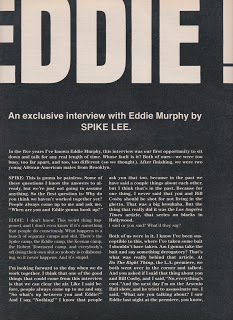
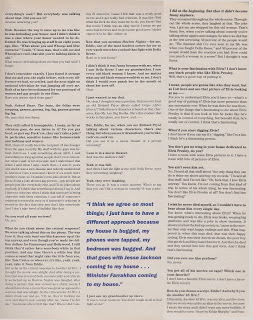
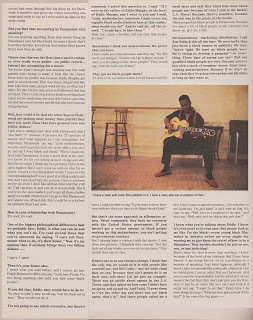
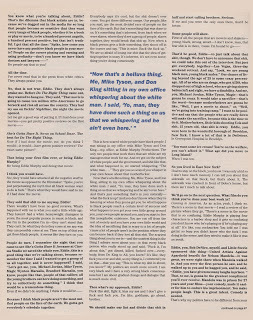
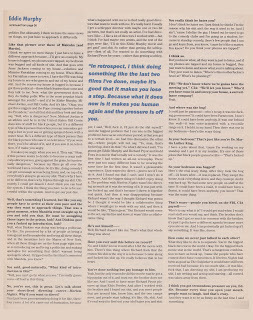
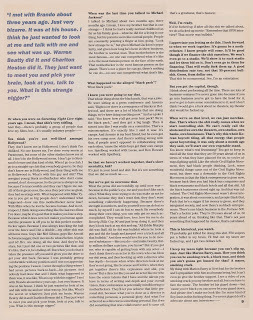
April 17, 2018
CREE SF FILMMAKER DANIS GOULET ON MAKING WAKENING (MF GALAXY 162)

HOW TO MAKE $100,000 LOOK LIKE $1 MILLION ONSCREEN, CLASSICAL CREE MYTHOLOGY IN AN ANTI-COLONIAL SF TALE
LISTEN/DOWNLOAD
For ages, inside and outside fan circles, the stereotype was that Africans and Indigenous people don’t like science fiction. That’s a bizarre myth. After all, because both science fiction and fantasy offer the spirit and the intellect the chance to remake the world. For peoples who remember the historical destruction of their own worlds and live under oppression, escape stories offer indispensable hope—the dream that deliverance is possible. And when they offer the intellect the means to plan utopia, or at least a new-topia, they’re even more powerful.
That yearning helps explain the extraordinary success of Black Panther, and the promise offered by award-winning science fiction filmmakers such as my guest today, Danis Goulet. She’s a Cree-Metis filmmaker from LaRonge, Saskatchewan. She’s an alumna of the National Screen Institute's Drama Prize Program in Canada and the TIFF Talent lab. Her social realist and science fiction films and virtual reality work have gone to the Toronto International Film Festival, Sundance, and imagineNATIVE. Her VR includes The Hunt, and her films include the dramas Barefoot and Wapawekka, and the post-apocalyptic Wakening.
That stunning 2013 short film imagines a future Toronto crushed under an unknown hypertechnological occupation. And engaging their ancient conflict at doomsday are two titans of Cree mythology: Weesagichak, the genderless shapeshifter from the stars, and Weetigo, the ruthless cannibal spirit of insatiable hunger.
On March 15, 2018, Danis Goulet spoke with me by Skype from her home in Toronto. We discussed:
Her early history as a fan girl and a young filmmakerHer move into art house cinema and then into global Indigenous filmWhy science fiction matters so much, especially to oppressed and occupied peopleThe political significance of the immortals Weesagichak and WeetigoHow she made her stunning film Wakening,And how on a budget of $100,000, she made it look like millionsWAKENING INTERVIEW WITH DANIS GOULET ABOUT WAKENING SUBSCRIBE FOR FREE ON iTUNES
SUBSCRIBE FOR FREE ON iHEARTRADIO
SUBSCRIBE FOR FREE ON PLAYER FM
SUBSCRIBE FOR FREE ON STITCHER
SUPPORT MF GALAXY ON PATREON
FOR MORE INFORMATION + LINKS
April 16, 2018
COMEDIAN ALI HASSAN ON HOW IMPROV ARTISTS KNOW THE SECRET OF LIFE AND COMEDIANS DON���T (MF GALAXY 161)

HOW BIZARRE CAREERS BEFORE COMEDY MADE HIM READY, WHY HOSTING CANADA READS WAS THE IDEAL TRAINING GROUND TO HOST CBC Q, WHEN A COMEDY MC SHOULD PURPOSEFULLY TANK HIS OWN PERFORMANCE
LISTEN/DOWNLOAD
I am a pernsnicketty cat���some would say difficult���and I have been known to argue at length that no one should ever use the expression ���laughed out loud��� because all laughter is out loud, by definition. So that means if I can overcome my boundless rage enough to invite the host of a national radio programme called Laugh Out Loud, I must really be impressed. And I am.
But Ali Hassan actually grabbed my attention not by MCing that showcase for Canadian comedians, but rather for his excellent work as an interviewer and guest host on CBC Radio���s q. I liked his voice, I liked his rapport with guests, and I liked his questions���but what totally floored me was that he easily and accurately dropped a reference to KRS-One during an interview without explaining it. I thought, I have got to contact this dude. So I did, and that���s what led to today���s conversation about the art, craft, and business of stand-up comedy and interviewing.
Hassan is a Pakistani-Canadian comedian, actor, and chef from Montreal. He���s toured Canada and performed at Just for Laughs and the Winnipeg Comedy Festival; he���s performed across the US and the Middle East, and took his one-man show Muslim, Interrupted to Scotland for the planet���s biggest comedy festival, the Edinburgh Fringe. He���s been in the movies Breakaway, French Immersion, and Goon!, and on TV he���s on Odd Squad, Man Seeking Woman, Game On, Cardinal, Designated Survivor, and FUBAR: Age of Computer.
Hassan spoke with me by Skype on February 2, 2018. We discussed:
How the ethics and personalities of stand-up are so different from those of improv comedyThe bizarre array of careers he attempted and what he learned from them that prepared him for comedyHow hosting Canada Reads was the ideal training ground to host CBC qWhen a comedy MC should purposefully tank his own performanceHow to teach inexperienced journalists the most important quality for their job, andWhen you should leave interviewing permanently
SUBSCRIBE FOR FREE ON iTUNES
SUBSCRIBE FOR FREE ON iHEARTRADIO
SUBSCRIBE FOR FREE ON PLAYER FM
SUBSCRIBE FOR FREE ON STITCHER
SUPPORT MF GALAXY ON PATREON
FOR MORE INFORMATION + LINKS



